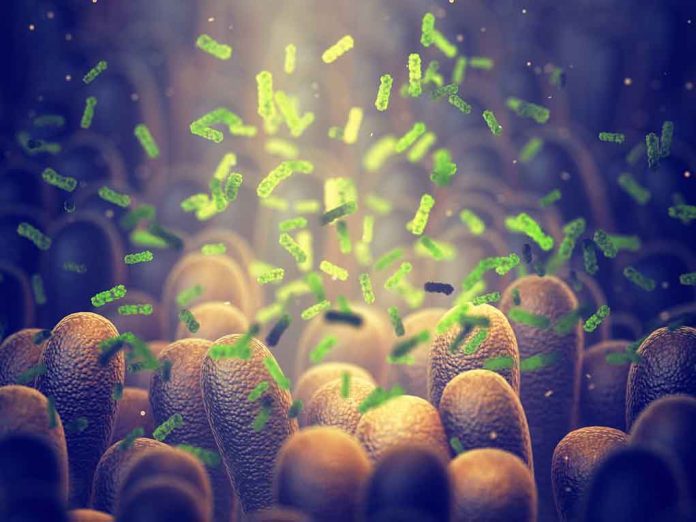
Recent studies are revolutionizing our understanding of mental health with compelling evidence connecting probiotics to reduced stress and anxiety through the gut-brain axis.
Key Takeaways
- The gut-brain connection plays a significant role in mental well-being, with the enteric nervous system communicating with the central nervous system.
- Probiotics, particularly certain Lactobacillus strains, have shown potential in reducing anxiety symptoms.
- Probiotics could complement traditional mental health therapies.
- Dietary adjustments incorporating probiotics might improve mood and reduce stress.
Gut-Brain Connection: An Overview
The concept of the gut as the “second brain” is gaining traction, with the enteric nervous system (ENS) directly communicating with the central nervous system (CNS). Up to 40% of people experience bowel problems that could trigger mood changes, suggesting the vital link between gut health and emotional states. Understanding this connection has paved the way for new treatment opportunities, such as antidepressants and mind-body therapies for conditions like IBS.
“The gut has been called a \”second brain\” because it produces many of the same neurotransmitters as the brain does, like serotonin, dopamine, and gamma-aminobutyric acid, all of which play a key role in regulating mood,” per Harvard Health Publishing.
Specific bacterial strains are being studied for their impact on mood and mental health. Changes in our gut’s microbiota can lead to systemic inflammation and affect brain function. As research explores the role of the gut-brain axis in neurotransmitter production like GABA, it’s evident that the diversity of gut bacteria directly affects stress and anxiety levels. GABA, for instance, is closely linked with managing stress responses.
Probiotics in Mental Health Therapies
Studies have shown that probiotic strains like Lactobacillus plantarum and Lactobacillus rhamnosus could reduce anxiety. Lactobacillus plantarum P-8 has been proven to alleviate stress and anxiety in adults. Probiotics, acting as psychobiotics, could enhance mood and cognition by modulating the gut microbiome, which is pivotal in neurotransmitter production. However, understanding probiotics remains in its primitive stages, with research continuously evolving.
While probiotics have shown promise, they have exhibited mixed results in depression and stress treatment. Many elements remain to be explored, including identifying optimal strains and the duration required to see significant results. Nonetheless, the potential benefits of incorporating probiotics into comprehensive mental health treatment strategies are promising. The multifaceted role of the gut microbiome in psychological health cannot be understated, and more robust, long-term research is needed.
Dietary Sources of Probiotics
Probiotics can be ingested through foods like sauerkraut, kefir, and Greek yogurt. Supplements provide additional intake when dietary sources are insufficient. These foods not only improve gut health but may also have indirect benefits for cognitive function. The gut generates neurotransmitters such as serotonin, which plays a significant role in mood regulation. Notably, the gut produces almost 90% of serotonin in the digestive tract, highlighting its vital role beyond digestion.
Dietary adjustments that embrace the benefits of such foods offer a holistic approach to mental and physical well-being. They illustrate the potential of adopting whole-food-based strategies alongside conventional mental health care to support overall health. As awareness grows, probiotics may play an even more integral role in shaping future treatments and interventions for mental health disorders.




